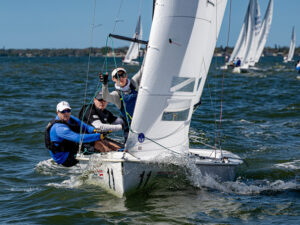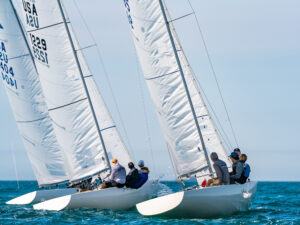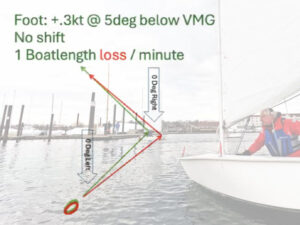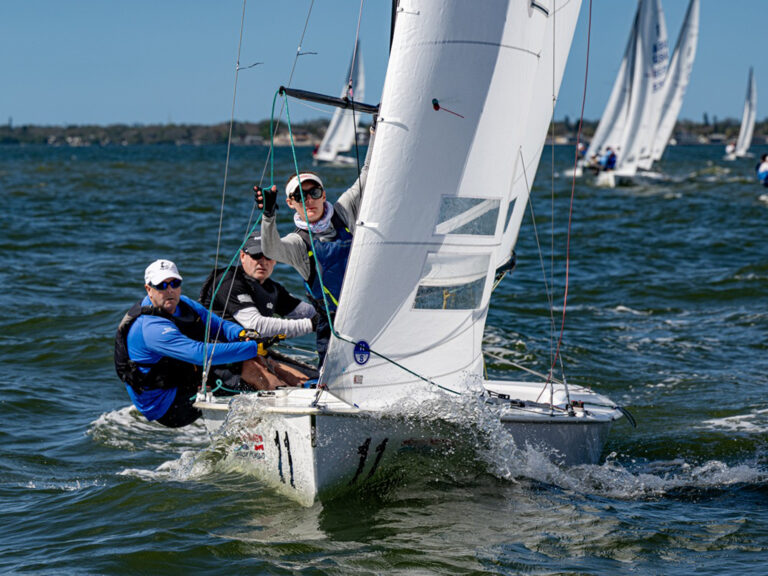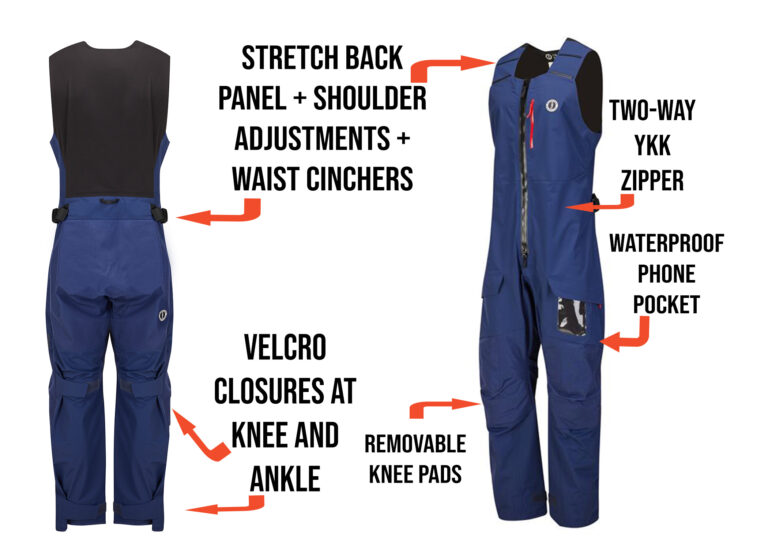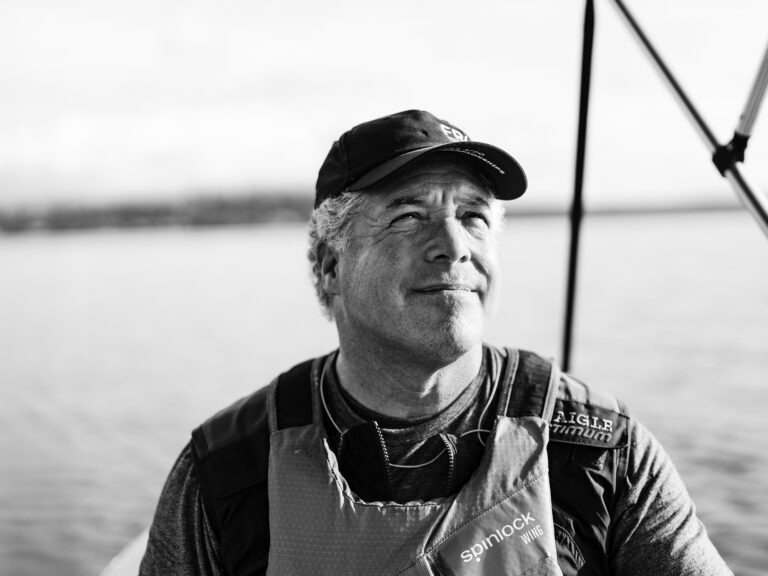World Sailing recently added an unusual new case to The Case Book. It deals with rules that are rarely discussed or even read but could have a big effect, especially if you sail in continental or world championships or aspire to sail in the Olympics.
The new case, Case 143, got its start from a routine protest following a race at a sailing club in Canada. In the incident, two competitors, Abel and Cain, tangled near a mark. Abel consequently protested Cain. Abel thought he had a strong case, but to his surprise, the protest committee disqualified him and did not penalize Cain. The notice of race and the sailing instructions each stated that the race would be governed by the rules as defined in The Racing Rules of Sailing (RRS).
Abel thought that the protest committee’s decision was not correct so, as apparently permitted by Rule 70.1(a), he wrote up an appeal of the decision and promptly sent it to Sail Canada, the national authority for all sailboat races in Canada. Then the fun began.
It turns out the club that had organized the race previously declined to join Sail Canada and had no connection to or affiliation with Sail Canada. When the appeal arrived in the mail, officials at Sail Canada questioned whether they had any obligation to consider an appeal from a club that was not a member of the organization.
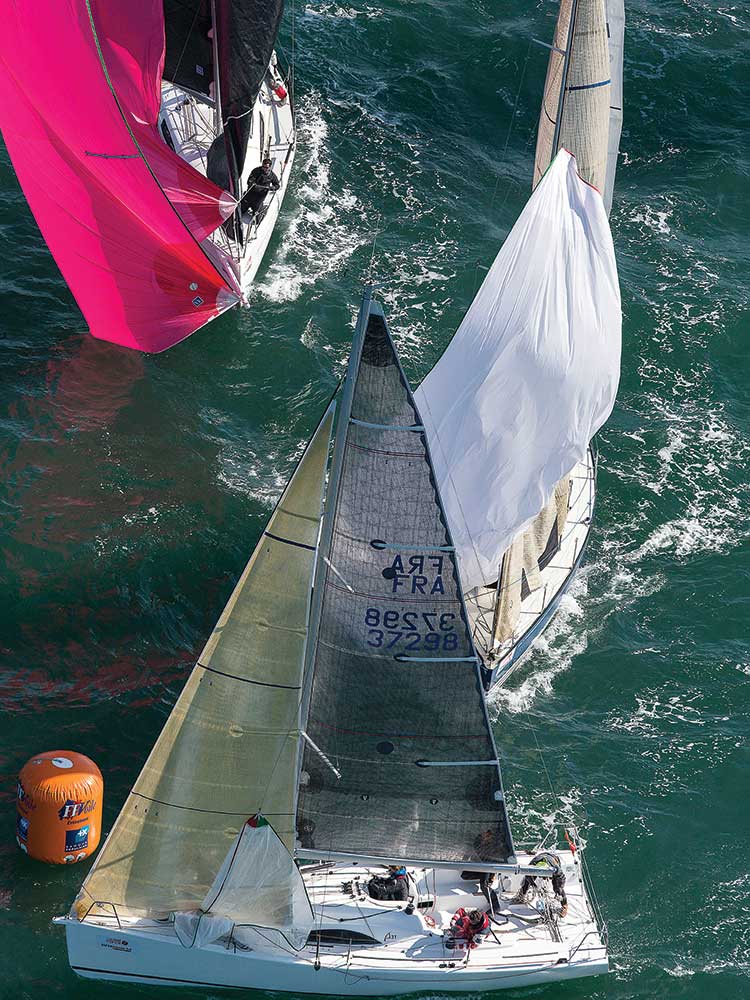
Their attempt to decide this question led them to parts of the rulebook rarely needed or studied. They found their answer in Rules 70.3, 84 and 89.1. Rule 70.3’s first sentence states: “An appeal under rule 70.1 … shall be sent to the national authority with which the organizing authority is associated under rule 89.1.”
Rule 89.1 does not permit any old club to organize a race. In fact, Rule 89.1 lists eight types of organizations that are permitted to organize a race: “World Sailing; a member national authority of World Sailing; an affiliated club; an affiliated organization other than a club, and if so prescribed by the national authority, with the approval of the national authority or in conjunction with an affiliated club; an unaffiliated class association, either with the approval of the national authority or in conjunction with the affiliated club; two or more of the above organizations; an unaffiliated body in conjunction with unaffiliated club where the body is owned and controlled by the club. The national authority of the club may prescribe that its approval is required for such an event; or if approved by World sailing and the national authority of the club, and unaffiliated body in conjunction with an affiliated club where the body is not owned and controlled by the club.”
Because the club was located in Canada, Sail Canada was “the national authority of the venue.” Since the club was not in any way affiliated with Sail Canada, the decisions made by the protest committee for a race at that club were not eligible under Rule 70 to be appealed to Sail Canada or, indeed, to any national authority. For these reasons, Sail Canada declined to consider Abel’s appeal.
Sail Canada thought their decision was interesting and that it deserved to be a World Sailing case. Proposing a case based on their decision had an extra benefit for Sail Canada — it could, effectively, determine whether World Sailing agreed with its decision. The World Sailing Racing Rules Committee did indeed agree. It upheld Sail Canada’s decision to decline to consider Abel’s appeal, and World Sailing’s view of that decision is now described in detail in new Case 143.
In that case, World Sailing goes beyond Sail Canada’s decision on Abel’s appeal to discuss Rule 75, Entering a Race. This rule has two parts. Rule 75.1 puts limitations on the boats that can be entered in a race, and Rule 75.2 requires competitors to comply with World Sailing Regulation 19, Eligibility Code. I’ll bet you’ve never taken any notice of Rule 75 or the World Sailing Eligibility Code.
Rule 75.1 requires the person who enters a boat in a race to be “a member of a club or other organization affiliated to a World Sailing member national authority” or a member of a national authority. This means that in order to enter your boat in any race in the United States, you must be a member of a club or organization affiliated to US Sailing or you yourself must be a member of US Sailing.
Rule 75.1 requires the person who enters a boat in a race to be “a member of a club or other organization affiliated to a World Sailing member national authority” or a member of a national authority. This means that in order to enter your boat in any race in the United States, you must be a member of a club or organization affiliated to US Sailing or you yourself must be a member of US Sailing. Most clubs in the United States are members of an regional sailing association (such as the Yacht Racing Association of Long Island Sound) and all RSAs I know of are members of US Sailing.
Beware, however, because some organizations that organize races in the United States have no affiliation whatsoever with US Sailing. In my experience, these are informal so-called beer-can races, organized by a group of sailors or a commercial organization like a restaurant, marina or dealership. Those informal races sometimes use the RRS, but not always. There is one in Seattle where there are only a handful of vague, simple rules, one of which is: “Never make a duck change its course.”
Rule 75.2 requires every competitor in every race, no matter how small or inconsequential, to comply with the World Sailing Eligibility Code. Rule 84 requires organizing authorities to follow the rules, and one of the rules is Rule 89.1. If the organizing authority for a race is not one of the permitted organizations listed in Rule 89.1, then, according to Regulation 19.20 in World Sailing’s Eligibility Code, that race is a “prohibited” race. That sounds ominous. Let’s explore what it means.
Suppose you are a competitor who hopes someday to compete in the Olympics, the Pan-Am Games, or a world or continental championship of one of the World Sailing Classes (classes that have achieved World Sailing class status include the Olympic classes as well as most popular one-designs). The Eligibility Code contains three rules worthy of your attention.
If the RRS do not apply, the International Regulations for Preventing Collisions at Sea govern the race. If you have studied the IRPCAS at all, you know the rights and obligations of boats under the IRPCAS are vastly different from the rights and obligations under the RRS.
First, you must have “World Sailing Eligibility” to compete in the events listed above. Anyone in the world can easily obtain World Sailing Eligibility, and few ever lose that status. That status can, however, be suspended or revoked if 1) you break Rule 69.1(a) by committing misconduct and part of your penalty is suspension of your eligibility by US Sailing or World Sailing (see Rule 69.3); 2) you break Rule 5, the Anti-Doping Rule; or 3) you compete in a race that you “knew or should reasonably have known was prohibited” (see Regulation 19.19 in the Eligibility Code). That code lists six types of events that are Prohibited Events; one of those six is an event that “does not conform to the requirements of Rule 89.1.”
Therefore, each of the competitors who sailed in the aforementioned race in Canada who knew, or should reasonably have known, that the club that organized it was not affiliated with Sail Canada could have been penalized by suspension for a year or more, or permanent revocation of their World Sailing Eligibility. Suspension or revocation of World Sailing Eligibility is exceedingly rare, but it is a possibility and, if it happened to an aspiring Olympian, it would be devastating.
Here’s one more problem that can occur in informal racing that does not use the RRS. In such a race, you expose yourself to added financial risk. Suppose you or your crew were injured or your boat was seriously damaged in a casual or informal race that did not use the RRS. When the RRS do not apply, the International Regulations for Preventing Collisions at Sea govern the race. If you have studied the IRPCAS at all, you know that the rights and obligations of boats under the IRPCAS are vastly different from the rights and obligations under the RRS. What seems like the simplest of maneuvers, like tacking from port to starboard, might violate the IRPCAS, even when the maneuver was carried out in full compliance with the RRS. This means, if there is injury or damage during a race, responsibility for the costs of that injury or damage will be based on fault as determined by application of the IRPCAS and not the RRS.
A few years ago, in an incident between two keelboats, there was damage that cost several thousand dollars to repair. The boats were on opposite tacks, racing under the IRPCAS and not the RRS, and there was no protest committee. An insurance company for one of the boats asked me to apply the IRPCAS to the incident.
Under the racing rules, there would have been no doubt that the port-tack boat would have broken Rule 10 and been responsible for all, or almost all, of the costs of repair. But, applying the IRPCAS, I found that the starboard-tack boat was at fault. The lesson from this is clear: Sail with great care in any race that does not use the Racing Rules of Sailing.
E-mail for Dick Rose may be sent to rules@sailingworld.com.

